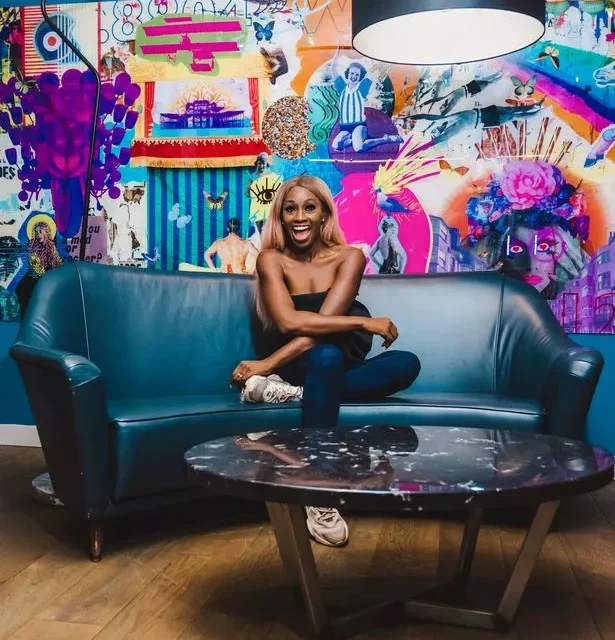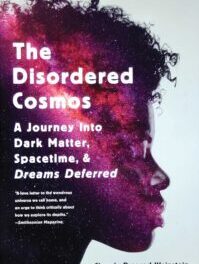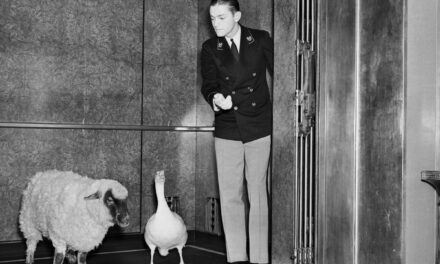A former professional dancer who was diagnosed with autism at the age of 30 after initially being told by an expert she was “too confident” to be autistic, and was just struggling with the “trauma of being black, adopted and having white parents”, is raising awareness about the cognitive condition in black women through social media and public speaking.
Ife Thomas, 39, who lives in Radwell, Bedfordshire, with her husband Terrance, 40, an IT director, and their two sons Quincy, 12, and Quba, 10, grew up often having “meltdowns”, which once led her to try to hurt herself.
As she got older, she relied on alcohol to “deal with the overstimulation” and even convinced herself she was a psychopath because she would “act or imitate other people in social situations”. When she saw a psychotherapist about this, she was told she was feeling this way because of being black and growing up in a white area with white adopted parents.

(Image: Sharron Goodyear Photography/PA Real Life)
At the time, Ife was training to become a professional dancer, and she went on to become a backing dancer and singer on The X Factor, performing on stage with stars such as Leona Lewis and Cheryl Cole.
When she was 28, her son was diagnosed with autism and she began to see similar signs in herself, but when she went to her GP, who knew her professionally, she was told she was “too confident” to have autism.
A year later, Ife had a meltdown in a supermarket, where her senses were overwhelmed and she began to slur her words, and she was officially diagnosed with autism by another doctor at the age of 30.
After her diagnosis, and an injury ending her dancing career, Ife decided to become a confidence and mindset coach and a public speaker, helping people one-on-one to achieve their dreams and improve their confidence.
She posts about her work and her daily life to her 30,000 Instagram followers, sharing photos and videos of son Quincy, who also has autism, to help “reduce the stigma” and show “we’re not the stereotype of people with autism”.
Ife told PA Real Life: “Growing up, I went on a school trip and there was a change of plans to go orienteering instead of bike riding. I wasn’t a naughty child but I remember asking the teacher again and again why it had changed, and I had a meltdown – I ran away with tears running down my face, I was so angry, and I tried to hurt myself. Everyone ended up calling me a diva and the teacher never raised any concerns.
“Looking back on my childhood, no fun things were fun for me. Things like Christmas were just too much for me – I missed out and found it hard to enjoy anything.
“In the end, I’m so thankful that I got diagnosed, but I wish there was more awareness about women with autism, especially black women, because since getting diagnosed, I haven’t met another black woman with autism.”

(Image: Collect/PA Real Life)
Since Ife was around 10, she can remember life becoming “more complicated” as she began to struggle in social situations.
She explained: “I remember going to a sleepover, and I would always copy how other people acted but that was hard in a group – I can remember feeling angry because the other girls were laughing without a care in the world, but I was really uncomfortable.”
After finishing school at 17, Ife moved to London to do dance training, and even bagged herself a role on The X Factor, but she still felt like “something was not quite right”.
“I had amazing experiences such as dancing with Cheryl Cole and Leona Lewis on stage – I was also in the black choir,” she said. “I also ended up going on a BBC dance competition show, Dance X, and worked with Arlene Phillips from Strictly.
“But, while dance training, I ended up drinking so much alcohol to numb my receptors and deal with the overstimulation in social events, it got to the point where I couldn’t socialise without drinking.
“I convinced myself that I was a psychopath because I had to act or imitate other people in social situations to fit in – I would often come across as rude, abrupt or direct if not.”
Ife decided to see a private psychotherapist as she was becoming reliant on alcohol. She explained: “The psychotherapist said the trauma of being black, adopted and having white parents was making me feel disconnected.”
Ife did not consider she may be autistic until she was 28, when her son was diagnosed after having “obvious challenges” such as not reaching certain developmental milestones, including being late to talk. But when Ife visited her GP, who was in her “professional circle”, he dismissed her.
“He said to me that I can’t be autistic because I’m too confident, I run my own my business, and I’m successful and laughed it off,” Ife said.
Around a year later, at 29, Ife had an autistic meltdown in a supermarket. She said: “Someone tapped me on the shoulder asking me a question, and when I turned around to answer them, I felt really dizzy.
“I couldn’t really work out what they were saying, and as I tried to speak, I started to slur my words – they thought I was drunk but I just felt so disorientated.”
She then visited a private doctor who eventually diagnosed her with autism and sensory processing disorder. Ife said: “It made me understand myself better, but I was angry because I felt like if I had known, I would have been able to deal with certain situations better or know why I was acting a certain way.”
After her diagnosis, and after injuring her knee when dancing and having to re-evaluate her goals, Ife decided to become a confidence and mindset coach, as well as a public speaker focusing on autism and self-assurance.
Through her work, she has also gained more than 30,000 Instagram followers, under the handle @ifethomas, and often posts about autism and her coaching.
She said: “When my son got diagnosed, the doctors told me that he is going to struggle for the rest of his life and that there is no cure for it – they said he may have to be in assisted living and implied he’s never going to achieve anything.
“As his mum, I’ve tried to give him as much confidence in himself, and help him love himself, as much as I can – now, he does great in his exams, he’s worked with a Disney animator, and goes to independent mainstream school.
“This inspired me to help others in general, and I also imagined a life for myself where I have a big house with a hot tub, drive a nice car, and my kids go to private school and do well – this was another motivator for me.”
Since launching her business, Ife has achieved her personal goals and has helped people with and without autism. She said: “I post on Instagram about my daily life, my children, my business and public speaking – I think posting about my son with autism as well as my typical life helps reduce the stigma and shows we’re not the stereotype of people with autism.
“I get a lot of mums who have children with autism, as well as women with autism, messaging me saying how thankful they are, which is really rewarding.
“I love my public speaking and coaching job too. I want to show others that they can achieve whatever they want when they visualise their dream life – I help them with the 12 steps to success on where they are to where they want to be, which I mention in my book, Powerlift Your Career.
“I hope to help others become more aware of the signs and help their confidence grow.”






